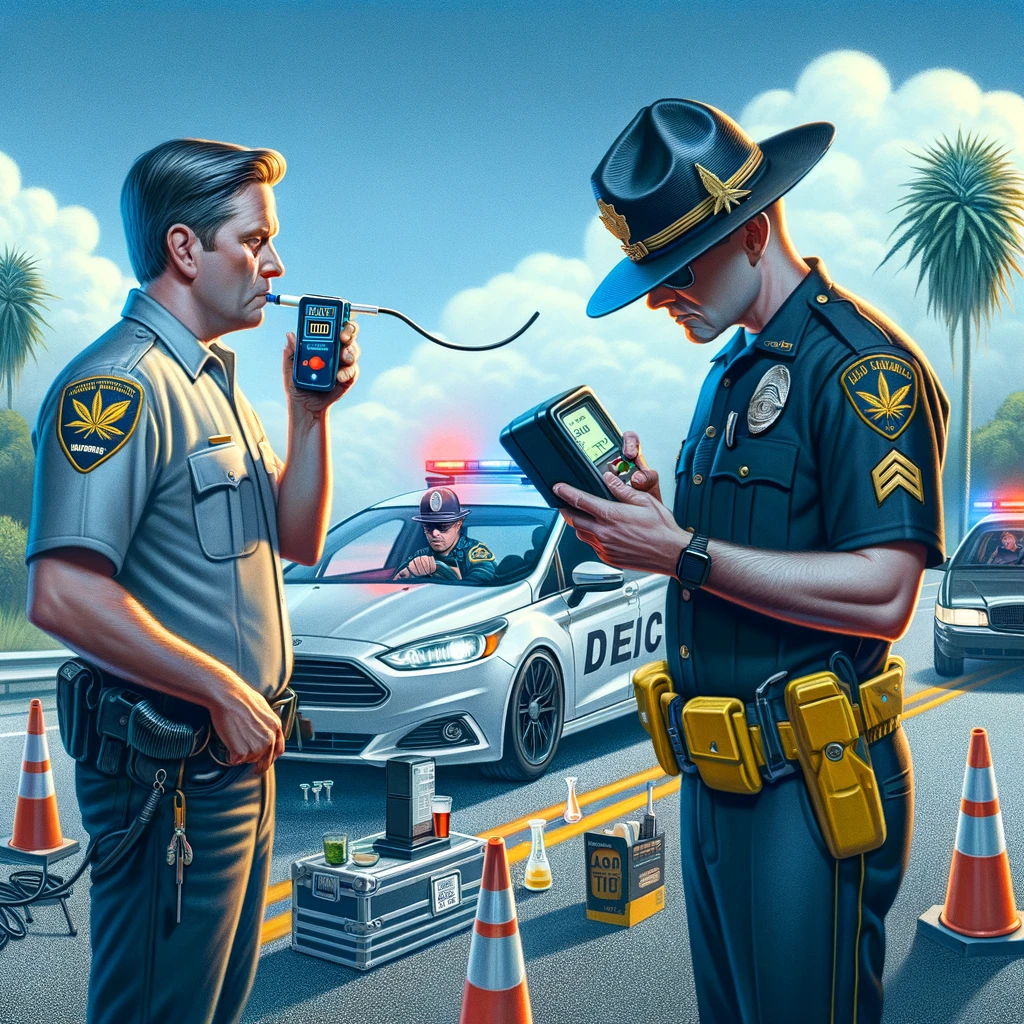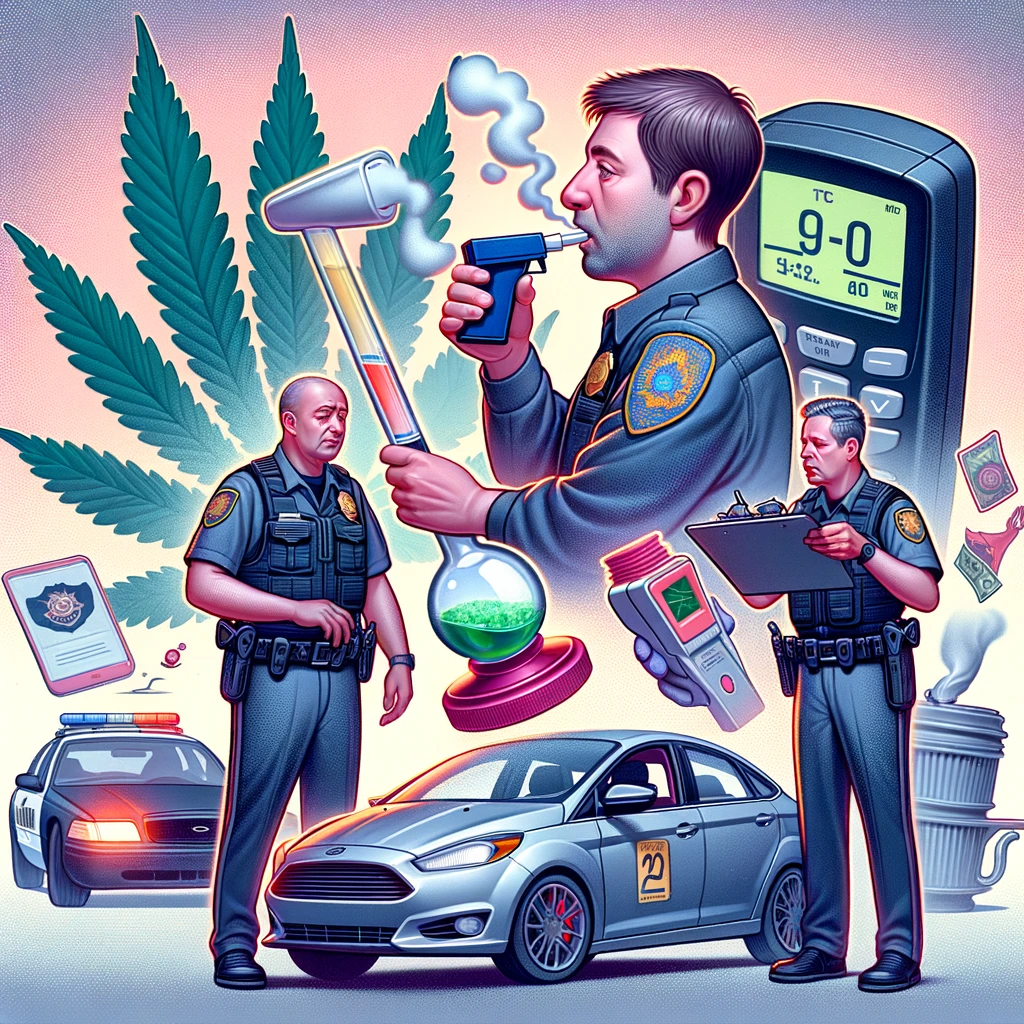
Driving Under the Influence (DUI) or Driving While Intoxicated (DWI) is a serious offense that can have severe consequences in Texas. Understanding the nuances of Texas DUI/DWI laws on marijuana, alcohol and drugs is crucial for every driver.
A Texas-sized Look at DUI/DWI Laws
Ever found yourself in a pickle after a wild night out? Well, in Texas, that pickle might just be a DUI/DWI charge! Buckle up as we dive into the wild world of Texas DUI/DWI laws – from booze to bud, we’ve got it all covered.
Short Answer:
Texas DUI/DWI laws on marijuana, alcohol and drugs. Keep reading for the lowdown!
DUI vs. DWI: Understanding the Difference
In Texas, DUI and DWI are often used interchangeably, but they have distinct legal meanings. DUI refers to driving under the influence of drugs or alcohol, regardless of the driver’s age. DWI, on the other hand, specifically pertains to driving while intoxicated by alcohol, with a blood alcohol concentration (BAC) of 0.08% or higher.
Legal Blood Alcohol Concentration (BAC) Limits in Texas
For drivers aged 21 and over, the legal BAC limit in Texas is 0.08%. However, for commercial drivers, the limit is lower at 0.04%. Additionally, for individuals under 21, any detectable amount of alcohol in their system constitutes an offense.

Marijuana DUI Laws in Texas
Texas has stringent laws regarding marijuana DUI. Even though marijuana use is illegal for recreational purposes in the state, driving under its influence is considered a serious offense. The presence of any detectable amount of THC, the psychoactive component of marijuana, in a driver’s system can lead to DUI charges.
Prescription Drug DUI Laws in Texas
Similar to marijuana DUI, driving under the influence of prescription drugs is also prohibited in Texas. Whether it’s painkillers, sedatives, or other medications, if they impair a driver’s ability to operate a vehicle safely, it can result in DUI charges.
Penalties for DUI/DWI Offenses in Texas
The penalties for DUI/DWI offenses in Texas can be severe and vary depending on factors such as prior convictions, BAC level, and whether an accident occurred. They may include fines, license suspension, mandatory participation in alcohol education programs, and even jail time.
| Offense Severity | Penalty |
| First Offense | Fine up to $2,000, license suspension up to 1 year, up to 180 days in jail |
| Second Offense | Fine up to $4,000, license suspension up to 2 years, 1 month to 1 year in jail |
| Third Offense | Fine up to $10,000, license suspension up to 2 years, 2 to 10 years in prison |
| Fourth Offense | Fine up to $10,000, license suspension up to 2 years, 2 to 20 years in prison |
| Intoxication Assault | Fine up to $10,000, license suspension up to 2 years, 2 to 10 years in prison |
| Intoxication Manslau | Fine up to $10,000, license suspension up to 2 years, 2 to 20 years in prison |

Field Sobriety Tests: What to Expect in Texas
When pulled over under suspicion of DUI/DWI in Texas, drivers may be asked to perform field sobriety tests. These tests, such as the walk-and-turn or one-leg stand, assess a person’s coordination and balance. Refusal to take these tests can be used against the driver in court.
Implied Consent Laws and Refusal Penalties in Texas
Texas operates under implied consent laws, meaning that by driving on the state’s roads, drivers implicitly consent to chemical testing if arrested for DUI/DWI. Refusing to take a breathalyzer or blood test can result in automatic license suspension, even if the driver is not ultimately convicted of DUI/DWI.
Ignition Interlock Device Requirements in Texas
In certain cases, individuals convicted of DUI/DWI in Texas may be required to install an ignition interlock device (IID) in their vehicles. This device requires the driver to pass a breathalyzer test before the vehicle will start, serving as a deterrent against drunk driving.
Texas DUI/DWI Defense Strategies
Facing DUI/DWI charges in Texas can be daunting, but there are defense strategies available. These may include challenging the validity of the traffic stop, questioning the accuracy of chemical test results, or proving that the driver’s impairment was not due to drugs or alcohol.
Repeat Offenses: Enhanced Penalties in Texas
Repeat DUI/DWI offenses carry harsher penalties in Texas. Subsequent convictions within a certain timeframe can lead to increased fines, longer license suspensions, mandatory ignition interlock device installation, and even felony charges.
Underage DUI/DWI Laws in Texas
Texas has a zero-tolerance policy for underage drinking and driving. Any detectable amount of alcohol in the system of a driver under 21 can result in DUI charges, leading to consequences such as fines, license suspension, and mandatory alcohol education programs.
Commercial Driver DUI/DWI Laws in Texas
Commercial drivers in Texas face stricter DUI/DWI regulations due to the potential dangers posed by large commercial vehicles. Any detectable amount of alcohol in their system while operating a commercial vehicle can lead to serious consequences, including loss of commercial driving privileges.
DUI/DWI Expungement Process in Texas
In some cases, individuals convicted of DUI/DWI in Texas may be eligible to have their records expunged or sealed. This process typically involves meeting certain criteria and demonstrating rehabilitation since the conviction.

Impact of DUI/DWI Convictions on Employment and Education
A DUI/DWI conviction in Texas can have far-reaching consequences beyond the legal penalties. It may affect one’s ability to secure employment, particularly in industries that require driving or have strict background check policies. Additionally, it can impact educational opportunities, such as college admissions or financial aid eligibility.
Texas DUI/DWI Statistics and Trends
Understanding the prevalence and trends of DUI/DWI in Texas is essential for policymakers and law enforcement agencies to develop effective strategies for prevention and enforcement. Monitoring statistics related to arrests, convictions, and accidents involving impaired drivers helps identify areas for improvement and measure the effectiveness of existing laws and initiatives.

In wrapping up Texas DUI/DWI Laws on marijuana, alcohol and drugs
Navigating Texas DUI/DWI laws pertaining to marijuana, alcohol, and drugs requires a comprehensive understanding of the legal framework and potential consequences. By staying informed and making responsible choices behind the wheel, drivers can help ensure their safety and the safety of others on the road.
Cheers to Safe Driving in the Lone Star State!
So, remember, next time you hit the road in Texas, keep it straight and sober. Let’s raise a toast to responsible driving and avoiding those pesky DUI/DWI mishaps. Stay safe out there, y’all!
Short Answer to Texas DUI/DWI Laws on marijuana, alcohol and drugs
Stay safe on Texas roads by knowing DUI/DWI laws. Drive sober, drive smart!

Other Related Articles:
- DUI and DWI: The Alcohol Marijuana Dilemma
- Consequences and Legal Options: Probation Violation In the Texas Penal Code
- Decoding DUI Regulations in Texas
- Texas Legal Perspectives on DUI
- Alcohol Laws and Regulations in Texas
- Navigating DWI: Texas Laws on Marijuana and Alcohol
- Navigating the Maze of DUI Laws and Consequences
- Texas’s Zero Tolerance Laws for Underage Drinking and Driving
- Navigating Texas DUI Laws on Alcohol and Marijuana
- Understanding DUI in Texas: Alcohol, Marijuana, and the Law
Frequently Asked Questions:
Yes, driving under the influence of marijuana can result in a DWI charge in Texas.
The legal blood alcohol concentration (BAC) limit for a DUI in Texas is 0.08%.
In Texas, DUI typically refers to driving under the influence of alcohol or drugs by minors, while DWI refers to driving while intoxicated by alcohol or drugs, regardless of age.
The sentence for a DWI in Texas varies depending on factors such as prior convictions, BAC level, and whether an accident occurred, but it can include fines, license suspension, and jail time.

